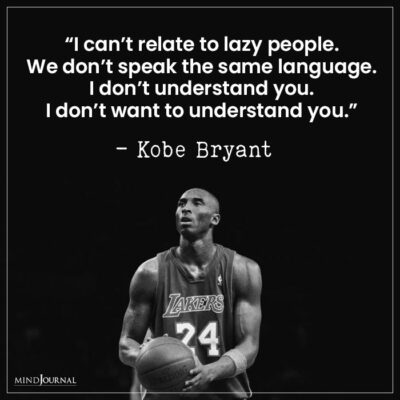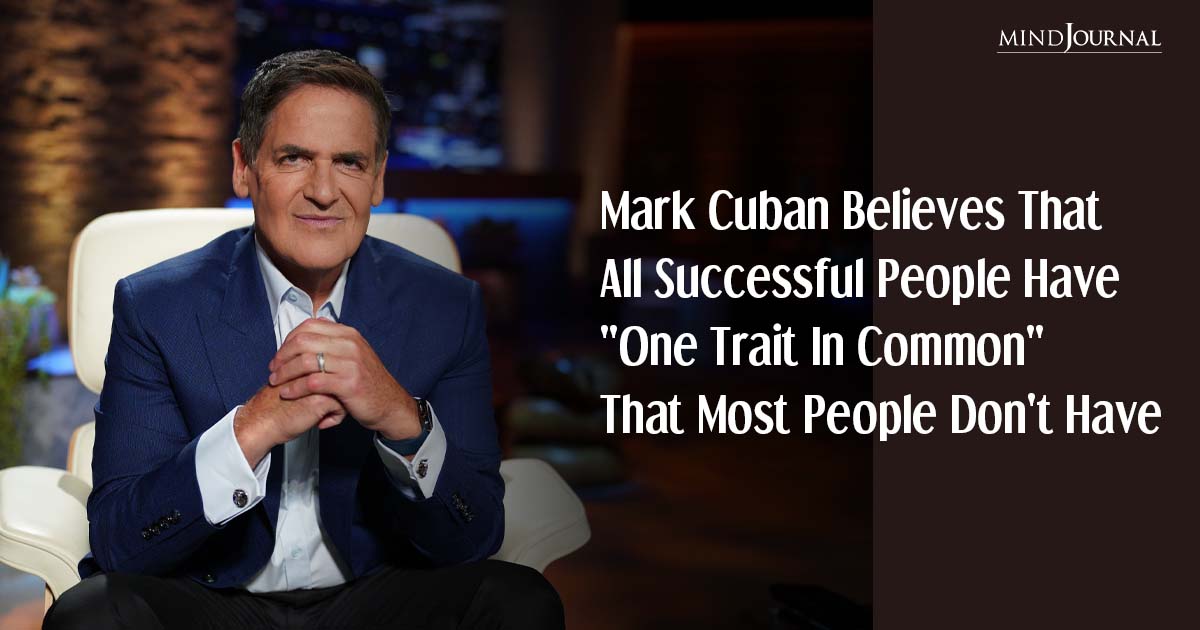Mark Cuban, entrepreneur and investor known for his business acumen, emphasizes a key trait that aspiring individuals should cultivate if they aspire to achieve similar success: unwavering effort.
As reported by CNBC, in a recent LinkedIn video post shared by entrepreneur and VC investor Randall Kaplan, Cuban, aged 64, stressed the significance of exerting maximum effort, highlighting that it provides a substantial competitive advantage, as most people tend to fall short in this aspect.
Related: 7 Examples of How Successful People Set Goals and Achieve Them
What Is That One Trait That All Successful People Have In Common, According To Mark Cuban?
According to Cuban, giving effort goes beyond fulfilling the basic requirements of a job or task. It involves taking the initiative to solve problems and exhausts all possible options to find solutions, even when not explicitly requested to do so.
This exceptional quality of going above and beyond is relatively rare, as many individuals limit themselves to the given instructions. Some people strictly adhere to instructions without exploring alternative approaches, while others may overlook details and focus on matters outside the scope of their responsibilities.
For those individuals who lack the willingness to go the extra mile, Cuban candidly advises against applying for a job with him.
This perspective arises amidst an emerging trend known as “quiet quitting”.

What Is Quiet Quitting?
The concept of “quiet quitting” refers to a growing trend among employees who are becoming increasingly dissatisfied with their work conditions and are choosing to disengage from going above and beyond their assigned responsibilities.
It is characterized by individuals deciding to focus solely on the tasks they are directly paid to do, without actively seeking additional challenges or opportunities for growth within their roles.
The “quiet quitting” movement is rooted in several factors. One of the primary reasons is the perceived disparity between the effort exerted by employees and the rewards they receive.
Many individuals feel overworked and underpaid, leading to feelings of frustration and a lack of motivation to invest extra effort into their work. Additionally, limited advancement opportunities and a lack of recognition contribute to the disillusionment experienced by employees.
This phenomenon has gained attention and sparked discussions within organizations and among experts in the field of employee engagement.
Employers are beginning to recognize the potential negative consequences of widespread disengagement and the impact it can have on productivity and overall company performance.
As a result, companies are exploring ways to address the underlying issues and create a more fulfilling work environment that motivates employees to invest their discretionary effort.
Related: Quiet Quitting: A Mental Health Movement Or An Anti-Work Movement?
Lexi Clarke, the Vice President of People at employee compensation company Payscale, views the “quiet quitting” movement as an engagement issue.
She explains that employees are increasingly seeking a balance between work and personal boundaries. This movement appears to be gaining traction and is expected to persist.
While Mark Cuban’s emphasis on effort and problem-solving skills is reflective of his personal values, he is not the only business leader who places great importance on these qualities in the workplace.
In 2022, approximately 2.7 million job postings on ZipRecruiter specifically listed “analytical thinking” as a required soft skill. Furthermore, Payscale’s 2023 Compensation Best Practices Report revealed that 29% of executives worldwide believe that employees who do not go the extra mile are unlikely to succeed and may face termination.
Cuban’s own career trajectory demonstrates his dedication to analyzing the potential returns on his efforts, rather than solely pursuing his passions and hoping for success to follow.
In a 2018 Amazon Insights for Entrepreneurs video, he shared that his achievements stemmed from the areas where he invested his time and effort.
Contrary to popular belief, Mark Cuban contends that passion alone is not sufficient for success. Instead, he advises individuals to critically evaluate where they devote their time and energy.
Related: 10 Major Differences Between Successful and Unsuccessful People
By evaluating where they invest their time and energy, individuals can align their efforts with areas that yield the greatest rewards. Ultimately, cultivating a strong work ethic and a commitment to continuous improvement can pave the way for success in various endeavors.


Leave a Reply
You must be logged in to post a comment.